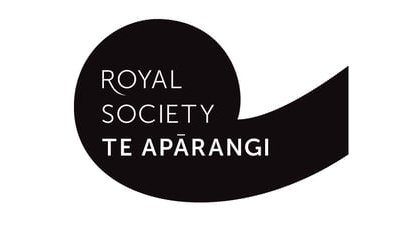Royal Society of New Zealand (RSNZ)

The Royal Society of New Zealand is an independent government body in New Zealand providing funding and policy advice in the fields of sciences and the humanities.
The Society was founded in 1867 by Sir George Grey as the New Zealand Institute as an apex organisation in science, with the Auckland Institute, the Wellington Philosophical Society, the Philosophical Institute of Canterbury, and the Otago Institute as constituents. Publishing transactions and proceedings was its main early function. The name was changed to Royal Society of New Zealand in 1933, a reference to the London-based Royal Society, a move requiring royal assent and subsequent act of parliament. In 2010, the remit was expanded to include the social sciences and the humanities.
Goals
Currently constituted under the Royal Society of New Zealand Act 1997 (as amended in 2012), the RSNZ exists:
- To foster in the New Zealand community a culture that supports science and technology, including (without limitation): (i) The promotion of public awareness, knowledge, and understanding of science and technology; and (ii) The advancement of science and technology education,
- To encourage, promote, and recognise excellence in science and technology,
- To provide an infrastructure and other support for the professional needs and development of scientists and technologists,
- To provide expert advice on important public issues to the Government and the community,
- To do all other lawful things which the Council considers conducive to the advancement and promotion of science and technology in New Zealand.
It is a federation of 49 constituent scientific and technological organisations, and also several affiliate organisations, and it has individual members.
Activities
The RSNZ's activities encompass:
- Science funding – as a non-political funding distribution agency for government funding, particularly in science research and science education
- Publishing – peer-reviewed journals such as NZ Journal of Botany and NZ Journal of Zoology
- Meetings and seminars – most local branches and constituent scientific and technological organisations run seminar series of some descriptions, and the RSNZ promotes these and coordinates touring international lecturers.
- Awards and medals – including:
- Rutherford Medal (formerly the Gold Medal) – awarded annually for exceptional contributions to the advancement and promotion of public awareness, knowledge and understanding in addition to eminent research or technological practice by a person or group in any field of science, mathematics, social science, or technology
- Pickering Medal – awarded annually to recognise people who have made outstanding contributions to New Zealand society and culture in science, mathematics, social science, and technology. Silver and Bronze medals are also awarded
- Fleming Award – awarded every three years to recognise protection of New Zealand's environment
- Hector Medal – awarded annually for outstanding work in chemical, physical or mathematical and information sciences by a researcher in New Zealand
- Science education – promotes quality science education and plays a role in setting the national science curriculum
The RSNZ also administers the Prime Minister's Science Prizes.
The New Zealand Association of Scientists works in similar fields, but is constituted as an independent non-profit incorporated society and registered charity, rather than being constituted by an Act of Parliament. The Foundation for Research, Science and Technology works in similar fields, but as a crown entity is not independent from politics.